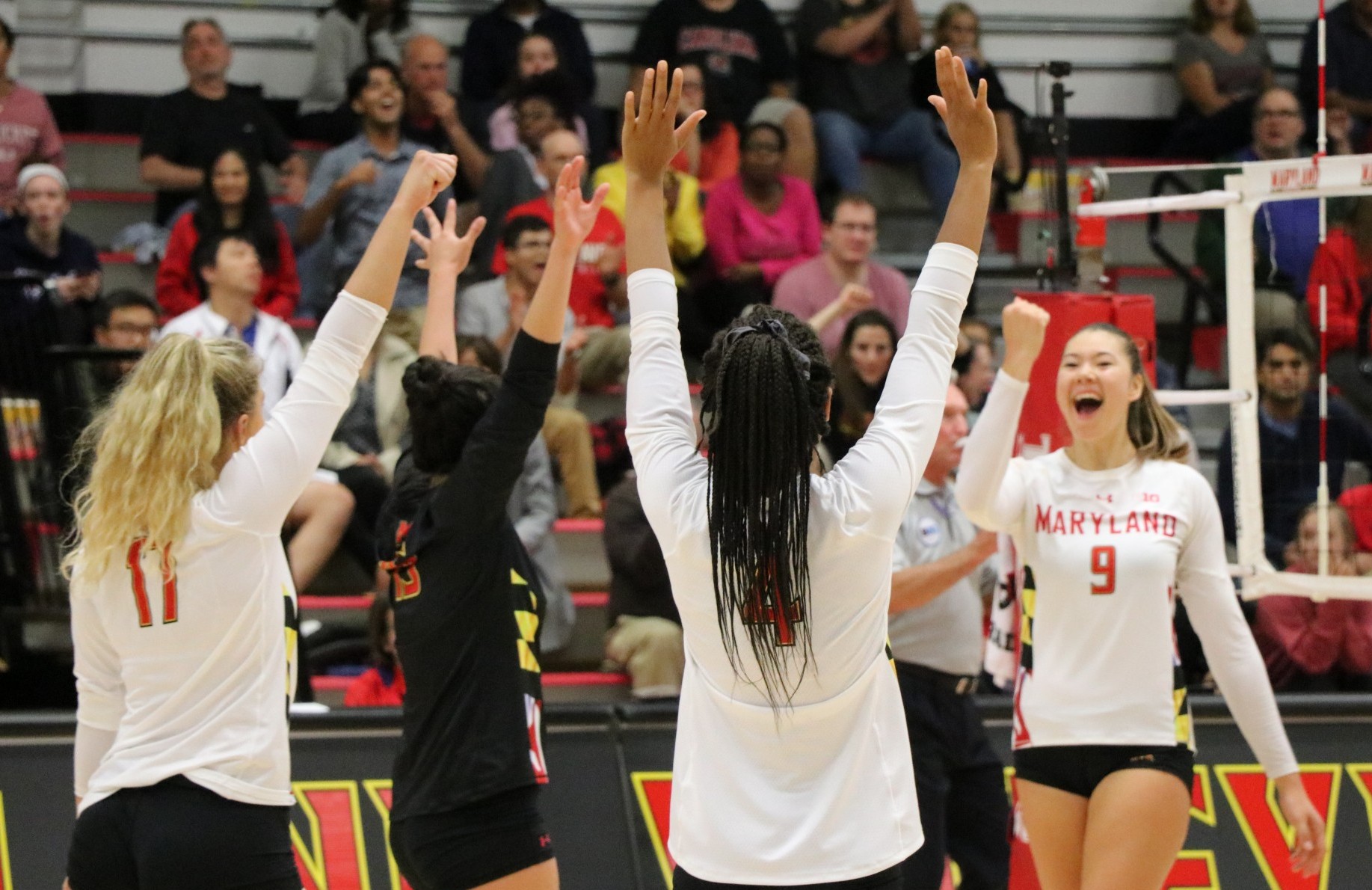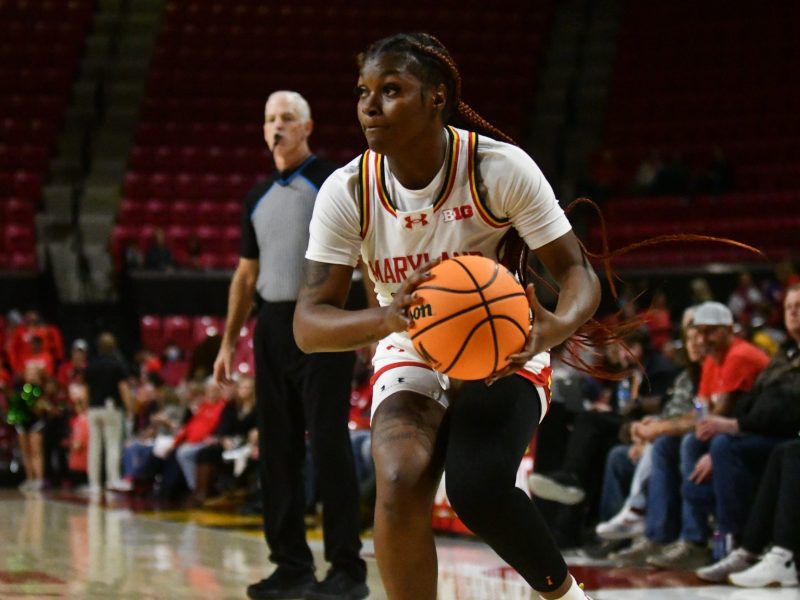Last weekend, Maryland volleyball played one of its best matches of the year when it forced South Carolina to five sets. But the next day, the Terps looked sloppy in a sweep against an inferior Liberty team.
With that fresh in their mind — and coach Adam Hughes’ reminders in their ears — entering the final tournament before Big Ten play, the Terps believe they’ll avoid a repeat of their letdown against the Flames.
Maryland’s three opponents this weekend have a combined 10-18 record, but Hughes believes the slate will be more challenging than it looks on paper.
“From the outside, people will say maybe it’s not as good,” Hughes said. “But if you look at the RPI … this is actually a really good weekend for us … We don’t look at the win/loss column, we look at what they’ve done on film.”
[Read more: Maryland volleyball searches for balance heading into its final tournament of 2018]
Maryland is familiar with two of its opponents — Princeton (5-3) and Temple (1-8) — having faced each in the last two years and escaping with a pair of five-set wins.
“We know that we need to take everyone seriously, and we can’t doubt anyone,” middle blocker Jada Gardner said.
Hughes sees the trip as another important test of his squad. He said the team learned “what they got” in the Maryland Invite and are looking to hammer home their fundamentals and gain momentum before facing conference opponents.
[Read more: Despite a 2-win weekend, Maryland volleyball’s hitting has room for improvement]
After a weekend of up-and-down performances, middle blocker Katie Myers said the Terps are trying to get more consistent this weekend.
The tournament is the team’s final tuneup before it begins Big Ten play, in what is perhaps the hardest conference in the nation. So in Philadelphia, the Terps look to make some adjustments to allow them to pull out wins over high-quality opponents.
“In these games, we need to think about improving,” Gardner said. “We can’t just look over them and not think about it because in these games we’re going to go through some difficult stuff, and we can use that to improve.”



